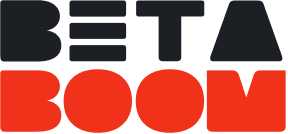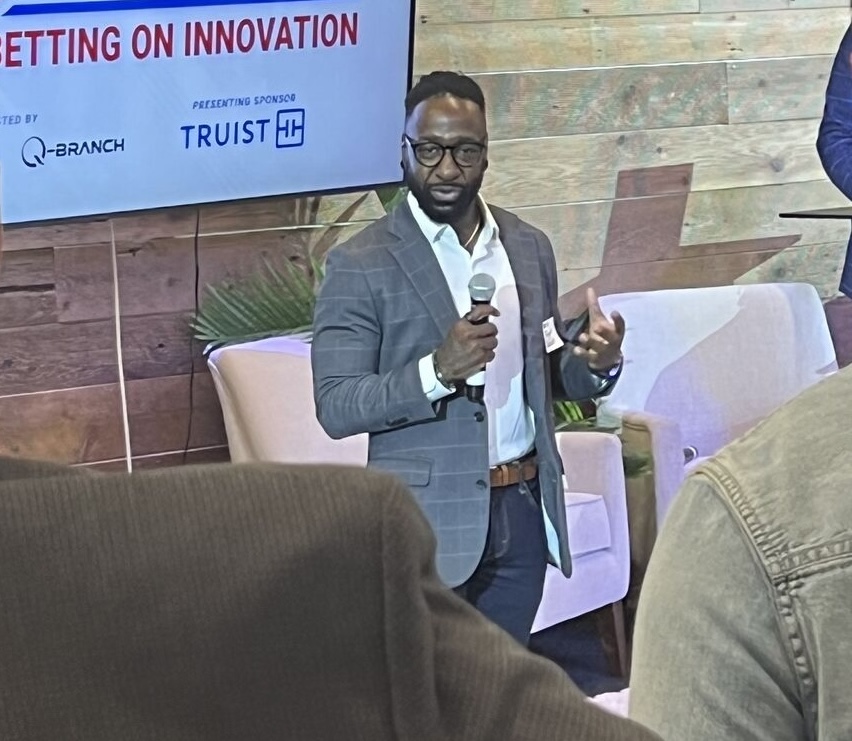Paul Gassée, 43, has spent most of his career in the early stage startup ecosystem with the "battle scars to prove it."
Paul founded two startups, ran sales at a recruiting software company, and spent the past eight years as a sales coach with Gassée Consulting. But it took a while to find what he was truly passionate about. Paul thinks people are too rushed to find their niche. He says he was undeclared for a long time in college and tried out a bunch of different jobs.
But today, "it's an opportunity for me to get up every day and serve founders and startup operators — people that want to put their dent in the universe."
Force Multiplier for Founders
Tell me a little more about what you do.
I consider myself a full-stack sales coach. Meaning I can help you with anything from designing a sales process from scratch to building out your sales team. My job is to be a force multiplier. I come up with the right insight at the right time, in the right framework, so they can continue growing as individuals. That idea also translates into the growth of their companies, too.
We determine actions through interactions with and listening to the market. It is a much more powerful force than we'll ever be and should listen to it. The ability to recognize both qualitatively and quantitatively what the market is telling us over time.
When Resistance Gets Expensive
Have you noticed any trends with early stage founders being stubborn about adapting to investors feedback?
I've seen it all the time. In some ways, I'm not sure I could charge what I charge if there weren't any resistances. There are a lot of sales methodologies, but the key is reaching that person, having them buy into whatever you're teaching. If they don't understand why it's important for them to implement it.
Founders can definitely be their own worst enemies. I'll say, investors can also be a founder's enemy, believe it or not. I see lots of bad advice from VCs to founders. An example is hiring salespeople too quickly, without them having a repeatable and predictable sales process documented in a playbook. Those are the two necessary conditions towards hiring sales reps.
Building Calluses Through Rejection
How do you recommend that founders stay mentally strong?
Rejection isn't an easy thing. There are many different things you can do. There's an old sales trick that I did at White Truffle with my first sales guy. When we were cold calling, we got a "rejection jar" and pennies. Our aim was to get rejected as much as possible while we were cold calling prospects. This was to build calluses. We wanted the rejection. We were seeking it out.
If you realize rejection is not the end of the world, then it's going to develop grit and determination. Getting back up in the face of failure is one of the more important skills. It's all about getting up, dusting yourself off, and going at it again.
The World Before Us, The World After Us
Do you have any good advice that you'd want to share with founders?
Present your startup in your slide deck with the following framework: the world before us and the world after us. The reason that idea is so powerful is because you can show a stark contrast between those two worlds.
I tell my founders who are fundraising that the "world before us" slide should be a dark side. It should be gloomy. It should have a protagonist. If you juxtapose that with the "world after us" slide, which looks like springtime. Your protagonist now is really happy. You can demonstrate how you're actually impacting the world.
That contrast can make a really strong case for the massive impact you can have and gets people to invest in your story.
Get Out of the Building
Do you have anything to add?
There's one thing I'd say is be very careful with product-led growth. I think some founders believe the old adage that if you build it, they'll come. That's usually false, especially for early revenue. It takes a long time to develop product-led growth motion.
So I would push founders to get out in the market even before their product's fully baked to make sure that they're building something that's worthwhile. It's a tremendous risk to your startup, but don't be afraid to get out there and to talk to people. Getting market feedback and respecting it is a really important thing.





